NHS Wales: Patient ready to go in six days stayed three weeks
- Published
Glyn Jones was well after six days but there was nowhere for him to go
A man spent three weeks in hospital despite being well enough to go home after six days because his care company could not resume his support.
Glyn Jones, from Cardiff, who has multiple sclerosis (MS) was admitted to hospital with gallstones and pernicious anaemia and later developed Covid.
ISS Healthcare said it could not comment on the case, but shared Mr Jones's concerns about social care.
Cardiff Council said it was facing "unprecedented" demand.
The Welsh government said it was doing what it could to ensure people were able to leave hospital as quickly as possible.
Mr Jones, 49, went into hospital on Thursday 6 October and was told he could leave on Wednesday 12 October.
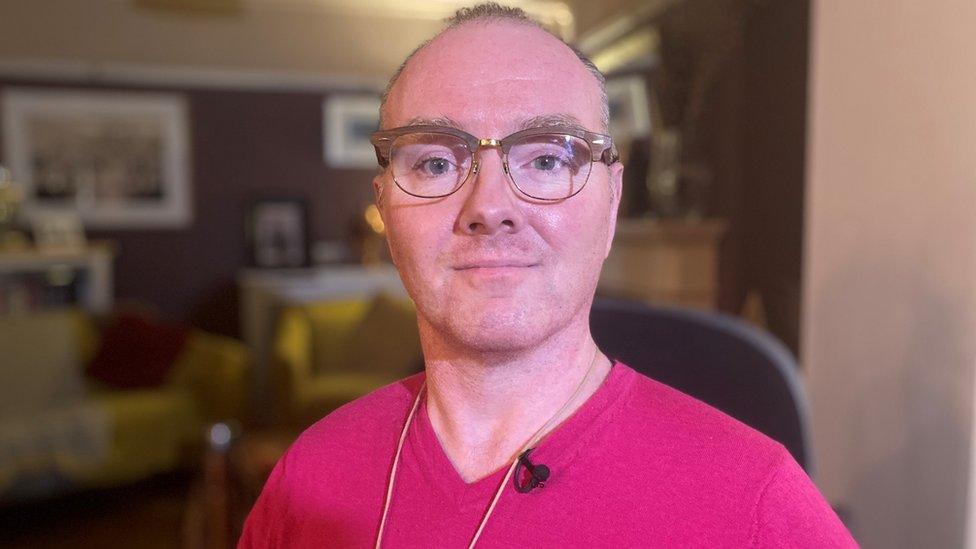
Glyn Jones was well enough to go home after six days in hospital
But his social care providers said they could not resume his care until the following Tuesday, by which time Mr Jones had caught Covid in hospital and had to self-isolate.
He was finally discharged on Tuesday 25 October - 19 days after he was first admitted and 13 days after being told he could go home.
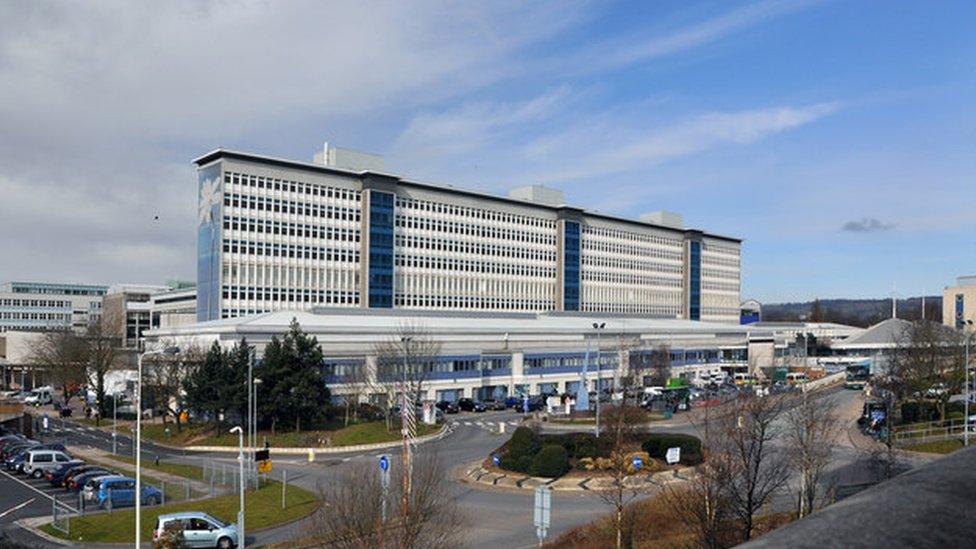
Glyn Jones was stuck at University Hospital of Wales for three weeks
Mr Jones said he was frustrated for his care providers.
"I understand completely the position they were in, which is that they're short-staffed," he said.
"It's just the frustration that every little bit of the process seems broken," Mr Jones said.
"And when you add it all together it just makes no sense.
"I'm sat in bed in the hospital hearing about ambulances queuing up outside and I feel like putting my hand up and saying 'I could go, I could free this bed up, I could free your staff up' but you haven't got the care workers available in the community."
Earlier this month, Wales' seven health boards had nearly 1,800 patients well enough to leave hospital but unable to because there was no care available for them.
The Welsh government has advised medically-fit patients should be discharged even without a care package in place.
The move has been criticised by the British Medical Association (BMA) and care sector professionals.
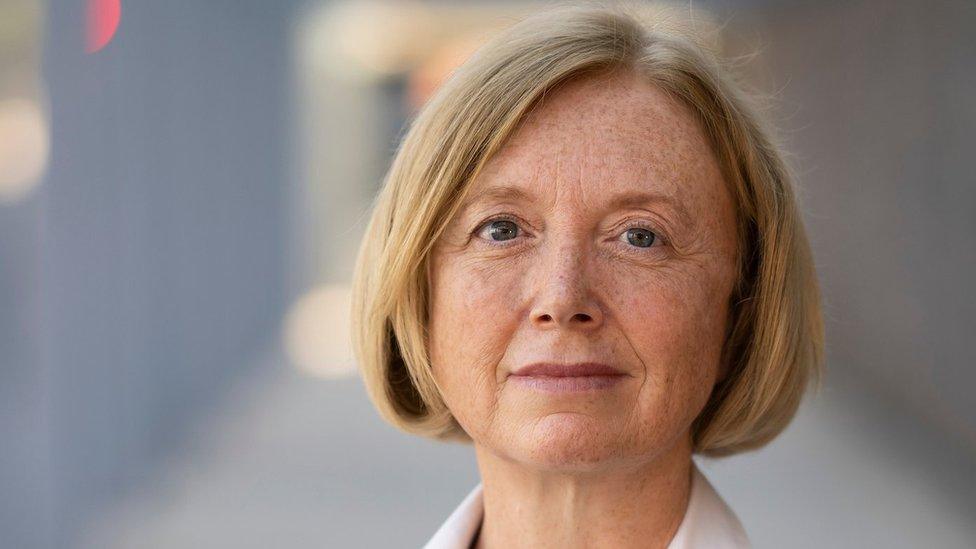
BMA's Welsh Council chairwoman, Dr Iona Collins, dubbed the pressures on the NHS a "train crash"
The BMA's Welsh Council chairwoman, Dr Iona Collins dubbed the pressures on the NHS a "slow motion train crash".
Mr Jones said social care needed to become more attractive by paying better.
He said: "These people are getting £10 an hour and, of course, there's no career progression within the social care system.
"So if they want to have a bit more job security or a pay rise, the career path really is to go out of the community into the care homes, or out of the care homes into the NHS.
"Out of all of the levels of health care that there are, they're the worst paid and the most put upon."
Last year, the Welsh government funded pay rises for social carers to bring their salary in line with the real living wage, which at the time was £9.90 an hour.
In June wages will to rise to £10.90 an hour, in line with the new real living wage.
Care Forum Wales chief executive, Mary Wimbury, said community care workers did an "enormously valuable job".
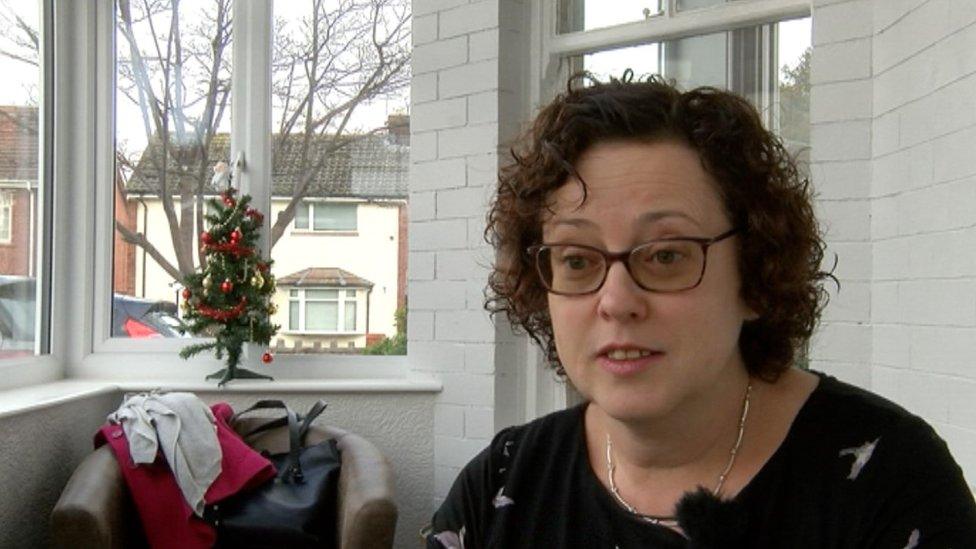
Care Forum Wales chief executive, Mary Wimbury, said carers were not being paid enough
"They're often working on their own, out in the community in all weathers, in the dark, trying to care for some of the most vulnerable people in society," she said.
"It's a skilled job, but we're not rewarding them sufficiently to do that."
ISS Healthcare's Max Wurr said the company, which is contracted by Cardiff Council, wanted to see sustained, long-term investment in community care.
He said: "A professionalised and fairly-rewarded social care workforce is the only way to ensure that people like Mr Jones can continue to lead dignified and healthy lives, and we entirely understand and sympathise with his frustration."
The Welsh government said it was investing "record amounts" in health and social care and was doing everything possible to ensure people left hospital as quickly as possible.
A spokesman said: "Workforce challenges remain an issue across all sectors, particularly in domiciliary care, and we are investing heavily to support the recruitment and retention of care staff."
Cardiff council said it was facing "unprecedented demand" for health and social care services which was preventing the timely discharge of patients from hospital.
A spokeswoman added the council was working closely with the health board "to facilitate discharge as soon as possible".
- Published12 January 2023
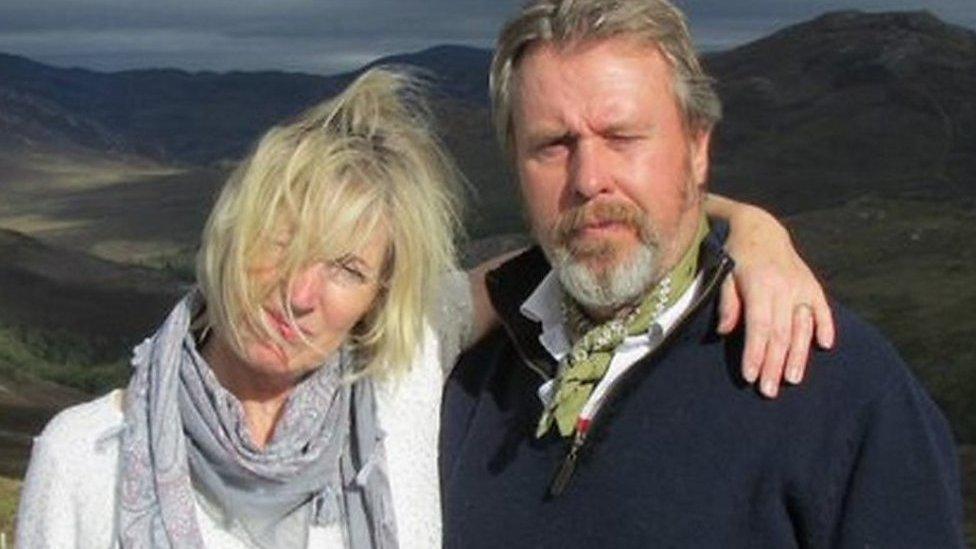
- Published4 January 2023
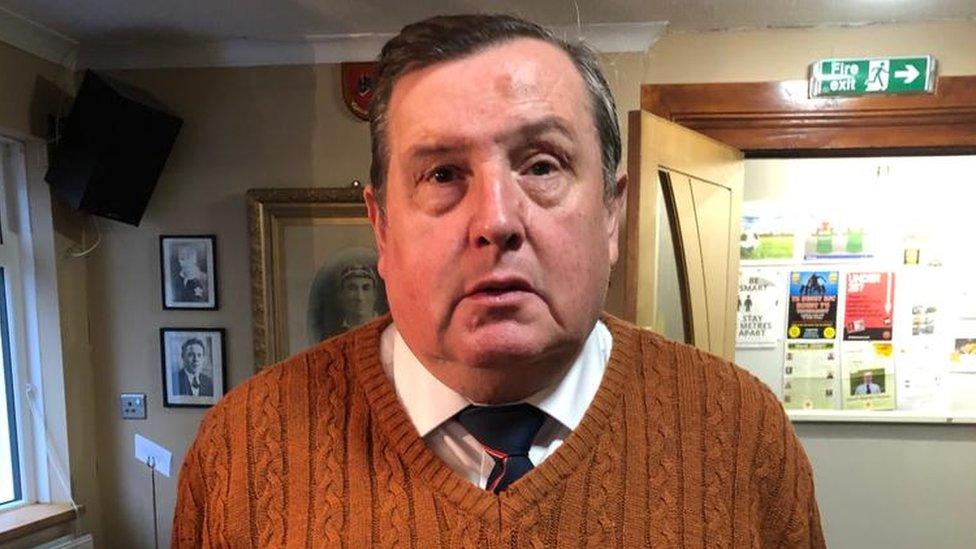
- Published22 December 2022
